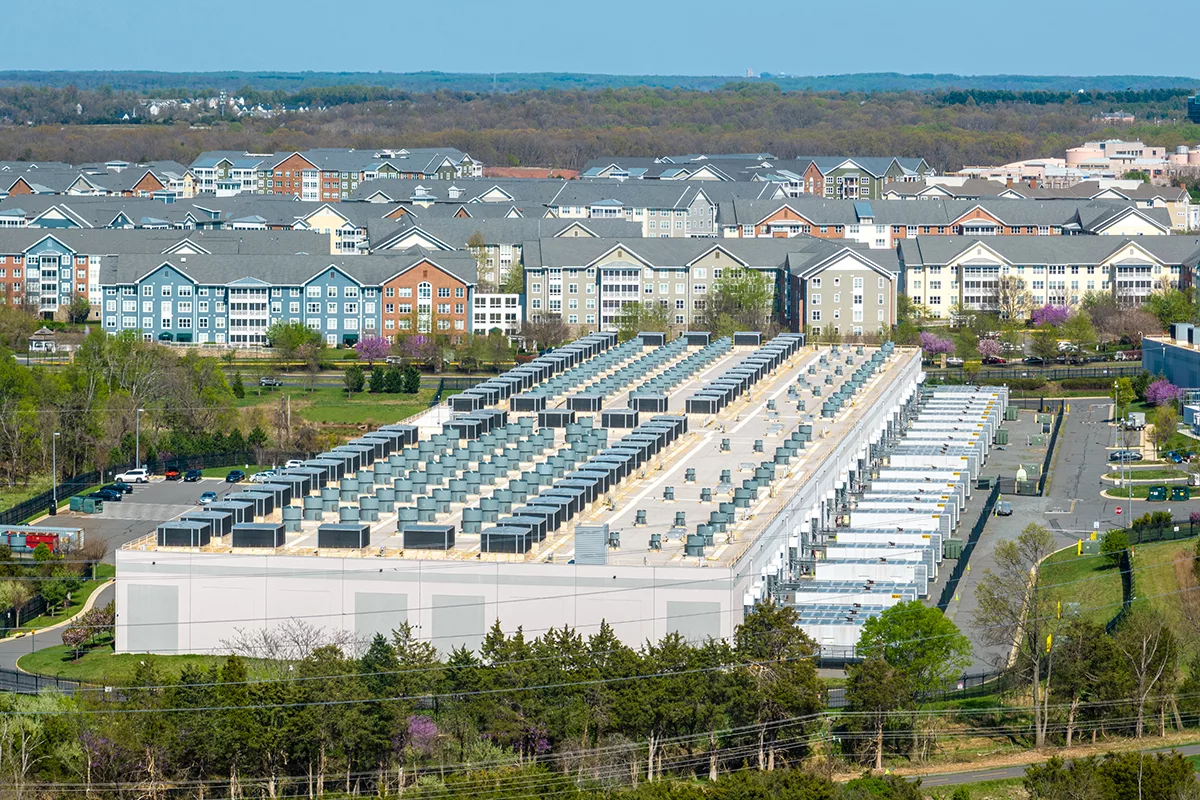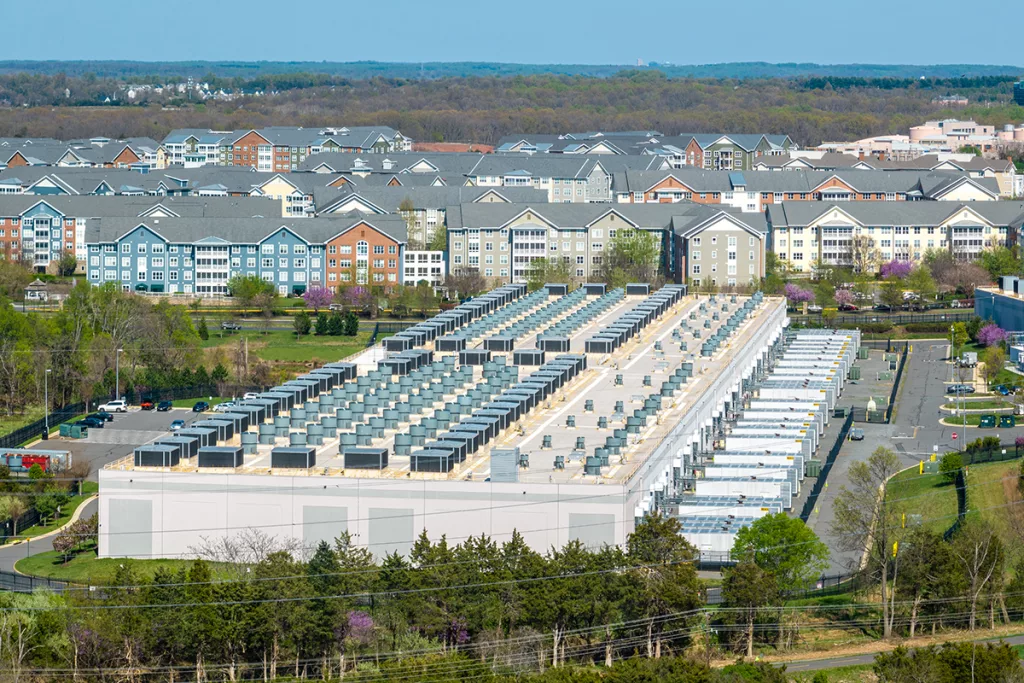Next Tuesday, Mar. 18, the Loudoun Board of Supervisors plans a major vote on its proposed Phase One amendments to the comprehensive plan and zoning ordinance to better manage data center development in the county.
Comprehensive Plans
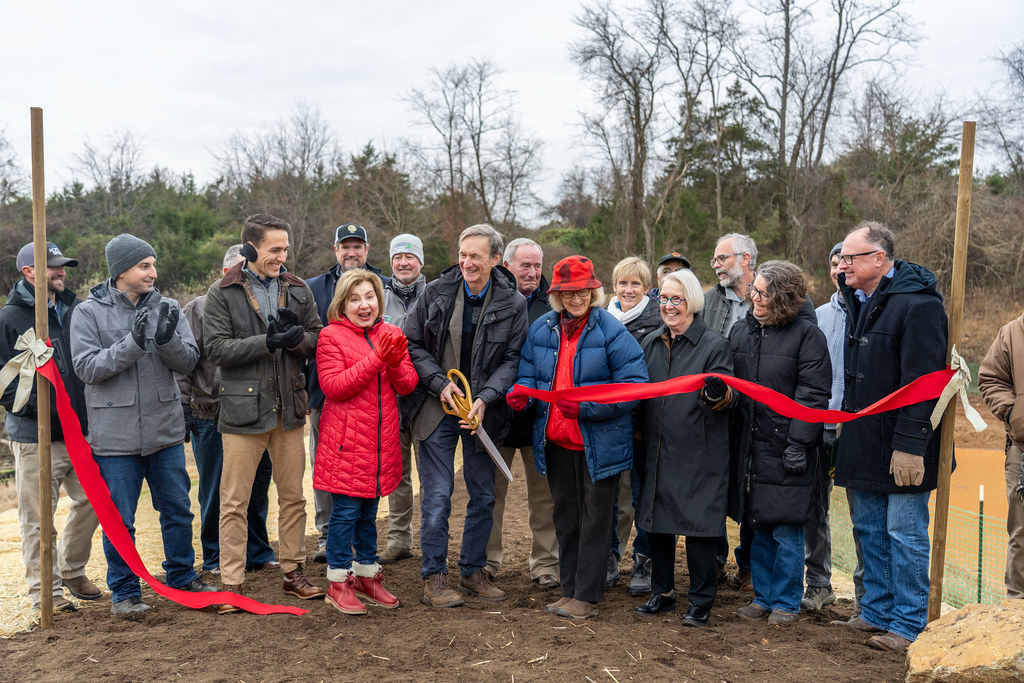
On The Ground Updates – December 2024
A series of short updates from around the PEC region – Albemarle & Charlottesville, Clarke, Culpeper, Fauquier, Greene, Loudoun, Madison, Orange & Rappahannock.
AC44 Phase 3 Begins in Full Force
The following text was sent out via email on Nov. 15, 2024. Sign up for PEC email alerts →

Dear Supporters,
The Albemarle Comprehensive Planning process is once again underway, this time with a robust agenda and communications materials to match. PEC has followed along since the beginning, but especially since our last update in August. Read on for a summary of where we are now and what’s happening this Tues., Nov. 19. Stay tuned and share this email with those interested in engaging with Albemarle’s future; we’ll resume our regular emailing schedule. Also, sign up for the County’s alerts to hear it from them first.
This has been a long process but it will end in mid-2025, and with your effort and ours, resulting in a better future for Albemarle County. Thank you for your engagement.
Planning Commission Work Session: Rural Area Land Use
Tues., Nov. 19 @ 6 p.m.
Lane Auditorium, County Office Building
401 McIntire Road
What’s Been Going On
Since the close of Phase 2 and the AC44 team’s July presentation outlining the new Comp Plan structure and next steps, the ball has kept rolling. County staff unveiled:
- An updated Growth Management Framework, which PEC is largely supportive of, should it include more language about the County’s commitment to unlocking the potential of the Development Areas and protecting the Rural Area for climate resilience.
- The Future Land Use Categories designations and map, which shows what and where specific types of land uses like for single family housing like an HOA or a mix of commercial and residential could occur, like the Downtown Mall.
- A draft of Activity Center place types, which describes four types of community spaces that can exist now or in the future with various businesses, services and housing where people can gather, shop, stroll, work, and meet our daily needs.
County staff have also reworked elements of the draft Comprehensive Plan over the summer and have come up with 10 plan topic chapters for implementation, with actionable steps for each, that will be shared throughout the rest of 2024 and early 2025.
The chapters now are:
- Development Areas Land Use
- Rural Area Land Use
- Transportation
- Thriving Economy
- Environmental Stewardship
- Historic, Scenic, and Cultural Resources
- Resilient Community
- Parks, Recreation, and Open Space
- Housing
- Community Facilities & Services
There was an all-CAC (Community Advisory Committee) meeting to address the draft Growth Management Framework and future land uses on Oct. 30. And the Planning Commission and the Board of Supervisors have held work sessions on the Development Areas Land Use chapter in the last couple of weeks.
Going forward, plan chapters will be released on the AC44 Engage website roughly monthly – or via the staff memo a week prior to future work sessions. Staff will then seek feedback from the Planning Commission during a work session, and the Board of Supervisors during a later work session. There will also be a monthly virtual lunch & learn events in order to ask staff specific questions – the first will be held on the Development Areas policies, goal statement, objectives, and actions this Thurs., Nov. 21 @ noon: register to attend.
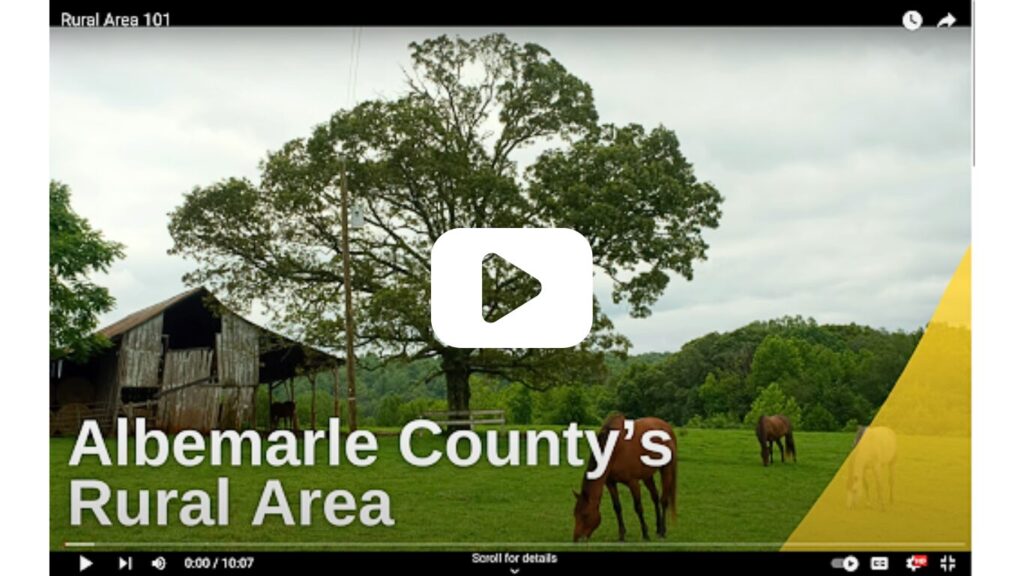
Nov. 19: Rural Area Land Use Planning Commission Work Session
From the beginning of this process, PEC has highlighted the importance of the Rural Area. To this end, there is much we can support in the proposed Rural Area Land Use draft chapter that will go before the Planning Commission this Tuesday, Nov. 19 @ 6 p.m. These include:
- the Rural Area Land Use Approach;
- the focus on strengthening Land Conservation;
- the recommendation for the development and adoption of a Rural Area Land Use Plan into the comprehensive plan; and
- protection of rural communities.
However, like our support for the Rural Area from the beginning, many of our concerns have stayed well into this process. We are concerned that:
- focusing on potential land uses at the rural Yancy and Shadwell I-64 interchanges could lead to sprawl along US250 east and west of the Yancy interchange and US250 east of the Shadwell interchange.
- the County’s proposal to review and update the legacy or stale commercially zoned parcels in the Rural Area. These are parcels that were zoned commercial before the Rural Area zoning was established in 1980. This approach could lead to sprawl and adverse impacts to Rural Area resources and communities.
- the County’s proposal to identify land uses and potential ways to support existing businesses and services in the Rural Area. Unless driven by a rural community’s input and consensus, this approach could result in sprawl and overdevelopment.
- the County’s proposal to identify an overall acreage or maximum percentage for land conservation in the Rural Area. Our assessment is that we’re very far away from reaching anything like maximum-desired conservation. The County’s “how much is enough?” quantitative approach could result in missed opportunities for conserving our most important resources that support resilience and quality of life.
Submit Comments:
As this is a work session and not a public hearing, there will be no opportunity for public comment, but you can still:
- Submit Comments in Writing: Public comments will be accepted in writing at the meeting, or by emailing comments to PlanningCommission@albemarle.org and copying BOS@albemarle.org
- and ac44@albemarle.org.
- Attend the Work Session: It is important for elected officials to see that community members are paying attention to the decisions that impact them.
- Join a future AC44 lunch & learn: County staff will virtually give a brief presentation about each chapter and answer any questions. See their events page for information on when the Rural Area will be. This Thurs., Nov. 21 @ noon will cover the Development Area.
We hope to see you at the meeting and hear that you submitted comments.
Upcoming Dates
- Nov. 19: AC44 Planning Commission Work Session: Rural Area Land Use – 6 p.m.
- Nov. 20: AC44 Board of Supervisors Work Session: Development Areas Land Use – 6 p.m.
- Nov. 21: AC44 Lunch and Learn: Development Areas Land Use – Virtually 12 – 1 p.m.
- Dec. 10: AC44 Planning Commission Work Session: Rural Area Land Use – 4 – 5:30 p.m.
Thank you!
Rob McGinnis, PLA FASLA
Senior Land Use Field Representative
Albemarle & Greene Counties
rmcginnis@pecva.org
Upcoming Work Sessions to Bring Rural Area Policy Changes
This text was taken from an email sent out on Nov. 14, 2024. Sign up for email alerts →
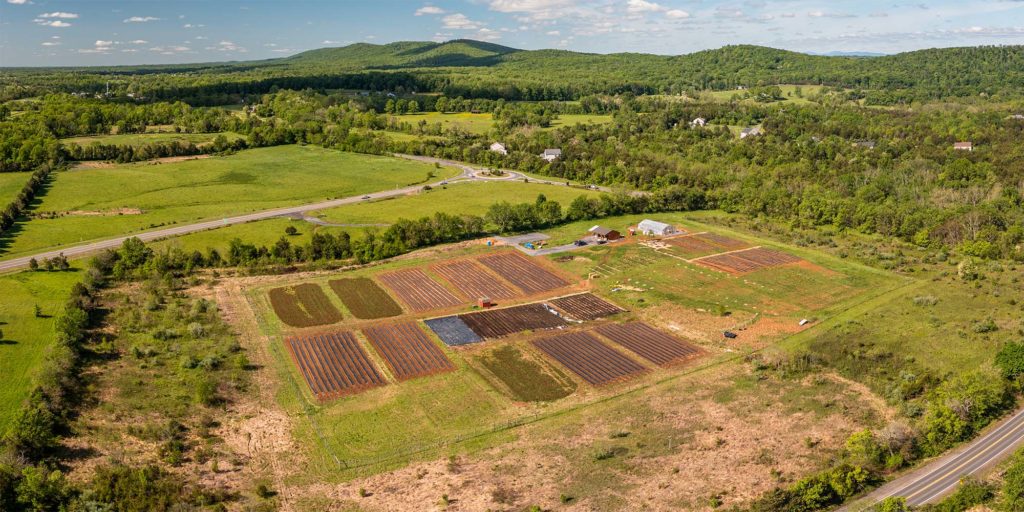
Dear Supporter,
In an effort to address harmful inconsistencies and reduce negative impacts on neighboring properties within Loudoun’s Rural Policy Area, the Board of Supervisors will be spending the next two years reviewing and updating both the Loudoun Comprehensive Plan and the accompanying zoning regulations. Originally part of the 2023 Zoning Ordinance Update, this new effort is called the Western Loudoun CPAM/ZOAM.
Twenty-six years ago, Loudoun County proposed a “200,000-acre solution” to support rural area businesses and curb residential development. Since then, the county has been highly successful in attracting new businesses looking to leverage Loudoun’s stunning rural open spaces. But under the current regulations, some businesses, especially traditional agricultural businesses – farms, equine centers, etc. – have been unable to innovate for an ever changing economy and customer base.
The businesses most supported by today’s ordinance are primarily non agricultural in nature as adjustments have been made to support the newer industries coming online over the years. Unfortunately, the agricultural based businesses have not benefited from updates or adjustments in the same way, and residents have felt the negative impacts of unexpected large public gatherings now located nearby.
Seven stakeholder work sessions will begin on Nov. 21, covering topics ranging from agricultural processing facilities to farm wineries. The official county webpage lists the topics and the dates they’ll be discussed. We encourage you to submit an official public comment form on any or all of the topics, to support the rural area and share your experiences and concerns for western Loudoun.
First Rural Area Stakeholder Meeting
Thurs., Nov. 21 @ 5 p.m.
1 Harrison Street, S.E., Leesburg
We know many of you gave input in the past, but it is vital to submit comments again! Filling out this form at least once and giving early input is very important as specific issues are still being identified and language has not yet been set.
Rural Loudoun is a valuable resource for all Loudoun residents and businesses, for farm-based enterprises and local food security, as well as tourism and the broader rural economy. It is also Loudoun’s primary source of climate mitigation, where its soils, trees and green space capture carbon and heat. This region has benefitted from that long-standing recognition in county policy; we need you to help ensure that continues into the future.
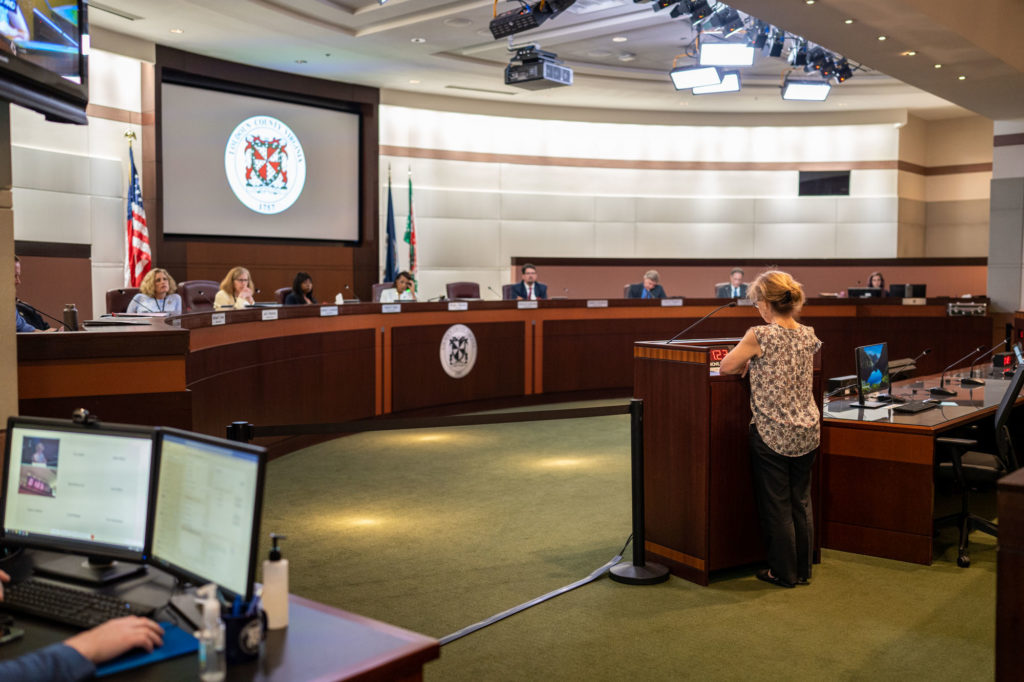
Review Process & Stakeholder Group
Although the process will include opportunities for public input throughout, it is vital that the public and interested parties give their input now, at the jumping off point, while there is ample time to address the most pressing issues.
- The Board will start the process with intensive stakeholder work sessions managed by its Transportation and Land Use Committee (TLUC). The first of seven meetings will begin next week on Nov. 21 at 5 p.m. They will run through 2025.
- Then, in 2026, county staff will develop draft language for the comprehensive plan and zoning amendments, to be reviewed by the Zoning Ordinance Committee (ZOC).
- And finally, the amendments will move on to a Planning Commission public hearing and work sessions, and a Board of Supervisors public hearing, for any final revisions and adoption. This process is expected to conclude in 2027.
Also participating in the work session discussions will be three distinct groups of stakeholders as defined by the Board: residents, agro-businesses, and preservation and agricultural businesses.
- Residents: These will be nominated individually by the three supervisors whose districts comprise western Loudoun. Contact Supervisors TeKrony or Kershner, or Chair Randall if you’re interested in serving as one of these representatives.
- Agro-businesses: These have been recently defined by Supervisor Kershner’s motion to include only wineries, breweries and distilleries. Representative stakeholders will be chosen by Beth Erickson of Visit Loudoun.
- Preservation and Agriculture: This group represents all other agricultural businesses and farmers of western Loudoun. Loudoun leads the Commonwealth of Virginia in 11 different agricultural industries, including equine, hay, vegetable production, cut flowers, berries and goats. Chris Van Vlack of Loudoun Farm Bureau will choose the representatives from this broad stakeholder group.
Meeting Schedule
The tentative schedule for the stakeholder sessions:
- Meeting 1: Liveries/Stables/Outdoor Recreation Scheduled – Nov. 21, 2024
- Meeting 2: Ag Processing / Other Farm Related Uses – Jan. 2025
- Meeting 3: Value Added Farming / Other Farm Related Issues/ Conservation Easement Density – Date TBD
- Meeting 4: Mountainside Overlay District / Signage Anticipated – Date TBD
- Meeting 5: Farm Wineries / Limited Breweries / Limited Distilleries/Events – Date TBD
- Meeting 6: Food Trucks / Food Service / Rural Restaurants – Date TBD
- Meeting 7: Outstanding Issues – Date TBD
Greatest Concerns for Nov. 21 Stakeholder Meeting
PEC and many advocacy groups have worked hard to support residents’ needs and keep active agriculture thriving in western Loudoun. And for many years, we have offered input and shared our concerns, as have many of you. Unfortunately, the bulk of specific, long-identified issues went unaddressed in the last zoning ordinance update.
Now is the time to make adjustments that prioritize support for the agricultural businesses and farming communities that Loudoun County is so well known for. We will keep you updated as this process moves along, and share our concerns in advance of each meeting. Up first on Nov. 21: Stable, Livery, Outdoor Recreation
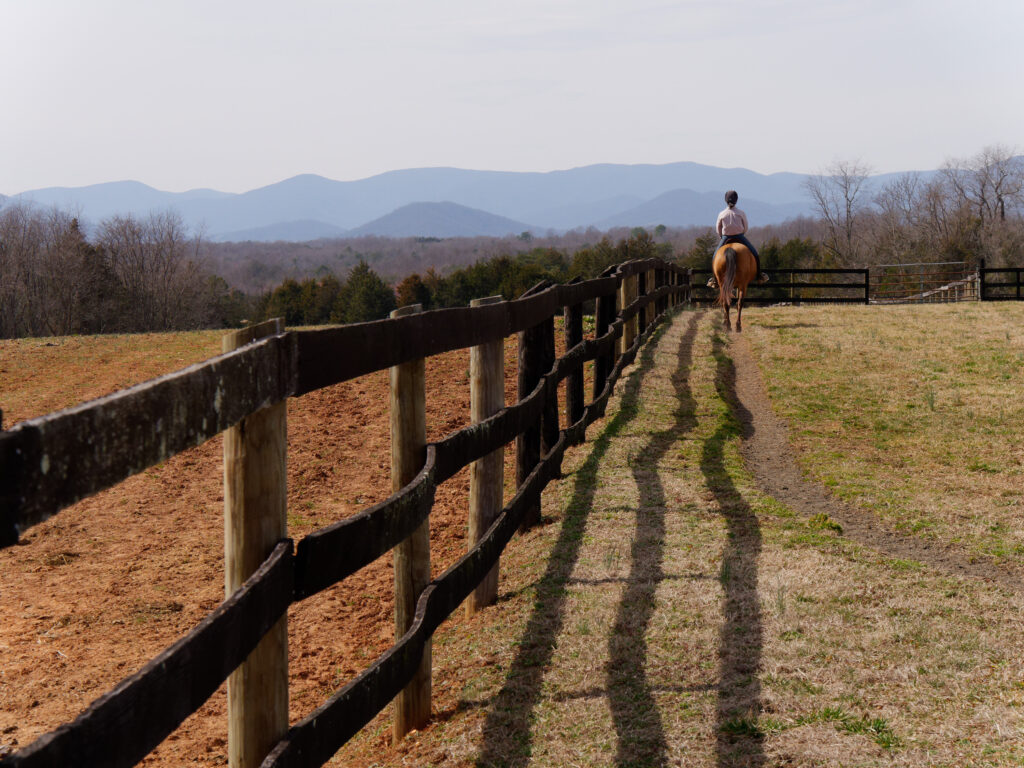
Loudoun County leads the Commonwealth in both number of horses and number of equine farms. Because the equine industry is one of the strongest agricultural sectors in Loudoun today with a great deal of potential for growth over the coming decade, it is vital that our county’s Comprehensive Plan and Zoning Ordinance are supportive of these farms. The current ordinance, however, places severe restrictions and regulations on their operations, far exceeding those on non-agricultural based businesses operating in the same region.
For example:
- The stable/livery has been incorrectly categorized as an “accessory agricultural use” in the zoning ordinance, instead of what they are, which is an essential standalone agricultural use.
- The setback and buffering requirements for stables and liveries is currently far greater than those for other rural businesses. They should be brought onto an even playing field as landscape buffers are expensive and represent a potential barrier to entry for new businesses, especially ones that are often vital components of the rural scenery itself.
- The current ordinance’s limitations on building square footage creates issues for the construction of indoor arenas for equine training and events. This prevents the equine industry from training year-round, which would boost Loudoun’s economy. Reasonable limits should be developed with industry input.
- Any outdoor recreation facilities built in western Loudoun should respect the setting in which they are created, with features like unpaved roads/parking lots and with no event style lighting to contribute to light pollution and detract from the county’s dark skies policies.
The Board of Supervisors is already looking to add a new equestrian facility, and existing equine facilities are considering expanding to host more national horse shows in Loudoun. With adjustments to the regulations governing stables and liveries, the county can support the equine sector to make an already impactful industry even more robust — to keep the rural economy growing, even as other sectors are reaching a saturation point.
Thank you for all of your support and for submitting your input at this critical time for these amendments. This is the moment to show the Board of Supervisors the public is watching and engaged on these issues!
Tia Earman
Senior Land Use Field Representative
Loudoun and Clarke Counties
tearman@pecva.org

On The Ground Updates – September 2024
A series of short updates from around the PEC region – Albemarle & Charlottesville, Clarke, Culpeper, Fauquier, Greene, Loudoun, Madison, Orange & Rappahannock.
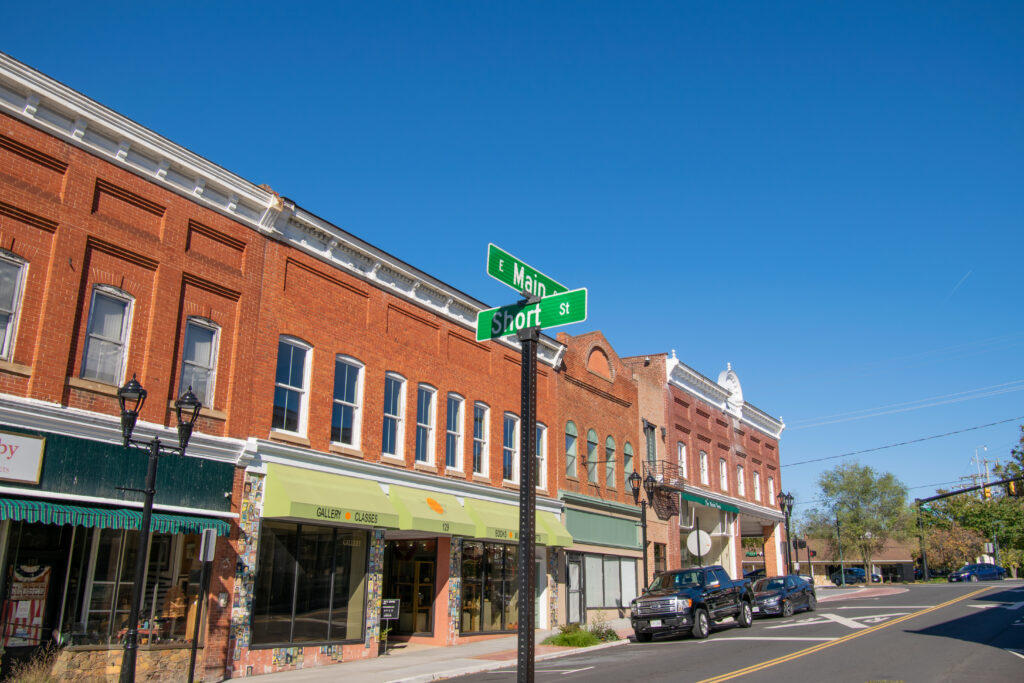
Town of Orange Comprehensive Plan Community Meeting
This text was taken from an email alert sent out on Sept. 16, 2024. Sign up for email alerts →

Dear Supporter,
The Town of Orange is seeking input from residents on its Comprehensive Plan, next Monday, Sept. 23, at a community meeting hosted by the Town of Orange Planning Commission. The chance to update the Comprehensive Plan only comes around every five years, so if you care about making Orange an even better place to live, you should definitely attend!
The Comprehensive Plan is a critically important document that represents the community’s vision for the future of Orange. It sets the framework for how land is used, identifies needed improvements to public facilities and programs, and it guides policy priorities and decisions around growth and development for the next 5–20 years.
Town of Orange Community Meeting
Monday, Sept. 23 @ 6–8 p.m.
Town of Orange Community Room
235 Warren Street, Orange
We hope that as new land use proposals come before the town, the updated Comprehensive Plan will help steer future economic growth and residential development, including affordable housing, into the town’s existing developed areas. PEC believes a mix of redevelopment and infill, developing vacant or underutilized parcels within existing developed areas, helps to improve infrastructure and quality of life for residents while preserving a town’s architectural assets.
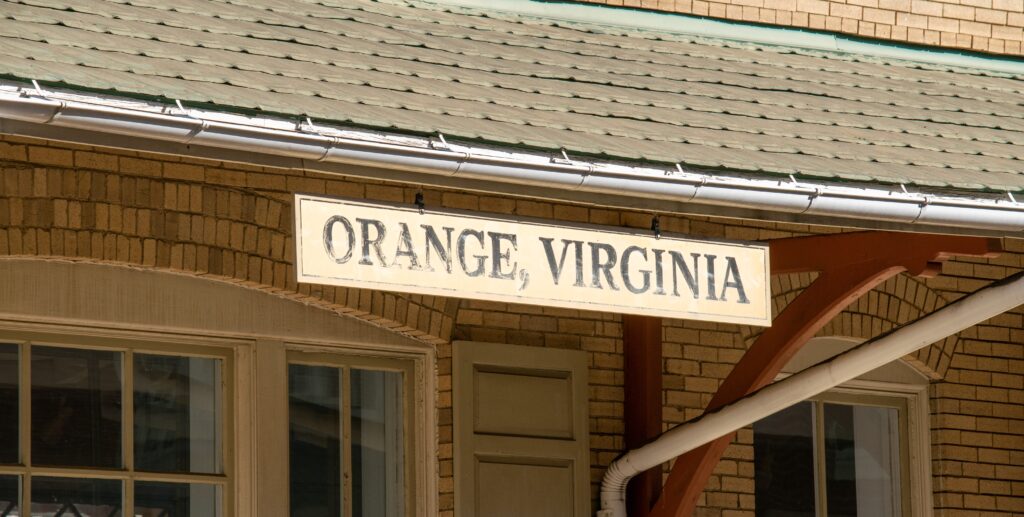
The Town Wants to Hear From You
As a resident, you now have the chance to weigh in on the updated Comprehensive Plan, which will shape how Orange moves forward over the next 20 years. A lot is at stake, including how we will protect natural resources, ensure a healthy and vibrant quality of life and thriving economy for everyone, address the impacts of a changing environment, and preserve the town’s rural, historic character. Review the draft updates →
The community meeting is designed to help the Town Planner and the Planning Commission better understand community needs and priorities, especially on:
- Economy
- Public Facilities/Infrastructure
- Education
- Transportation
- Architectural Assets and Aesthetics
- Environment
- Town-County Partnerships
- Public Safety/Fire and Rescue/Community Health/Government
- Arts
- Population/Demographics/Housing
- Recreation
Planning Commissioners will welcome everyone to the meeting and give a brief overview of the process before inviting attendees to move around the room and visit different tables focused on these topics. You can visit each table, hear what the Planning Commission is proposing and respond in real time to the representative at that table. They hope to collect the feedback and continue working on a draft into the winter, but this may be one of the only chances to have this level of direct engagement in the process. There will be no online or virtual component to this event.
Please share this email with friends, family and neighbors so more voices can be heard early on. If you have any questions, please don’t hesitate to reach out, and I hope to see you on Sept. 23.
Sincerely,
Don McCown
Land Use Field Representative
Orange & Madison Counties
dmccown@pecva.org
(434) 977-2033 x7047
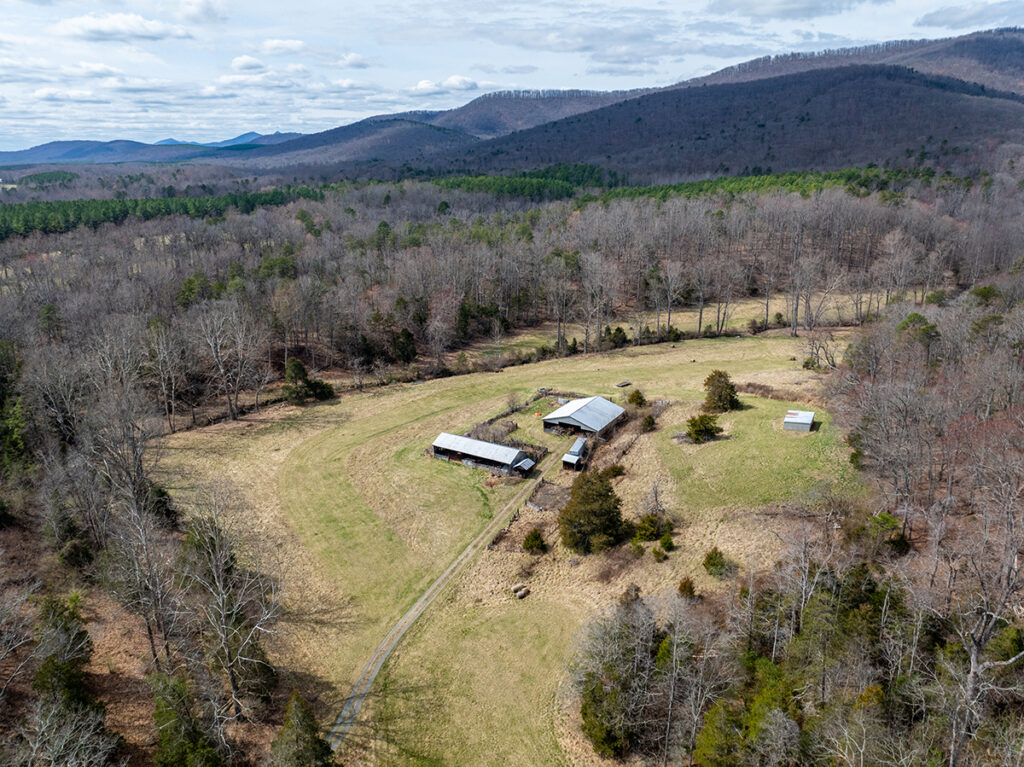
Make Conservation an AC44 Priority
PEC is advocating that, as part of the AC44 Comprehensive Plan update, Albemarle County should strengthen its land conservation programs.
Albemarle Comprehensive Plan Stopped Engagement for Four Months
After months without public communication, County staff say AC44 will undergo a “refinement,” but have given little clarity on what it means.

What’s Going On with AC44?
After nearly four months of noncommunication to the public, County staff have announced that the Albemarle Comprehensive Plan, nearly three years into the update process, will undergo a “refinement”.
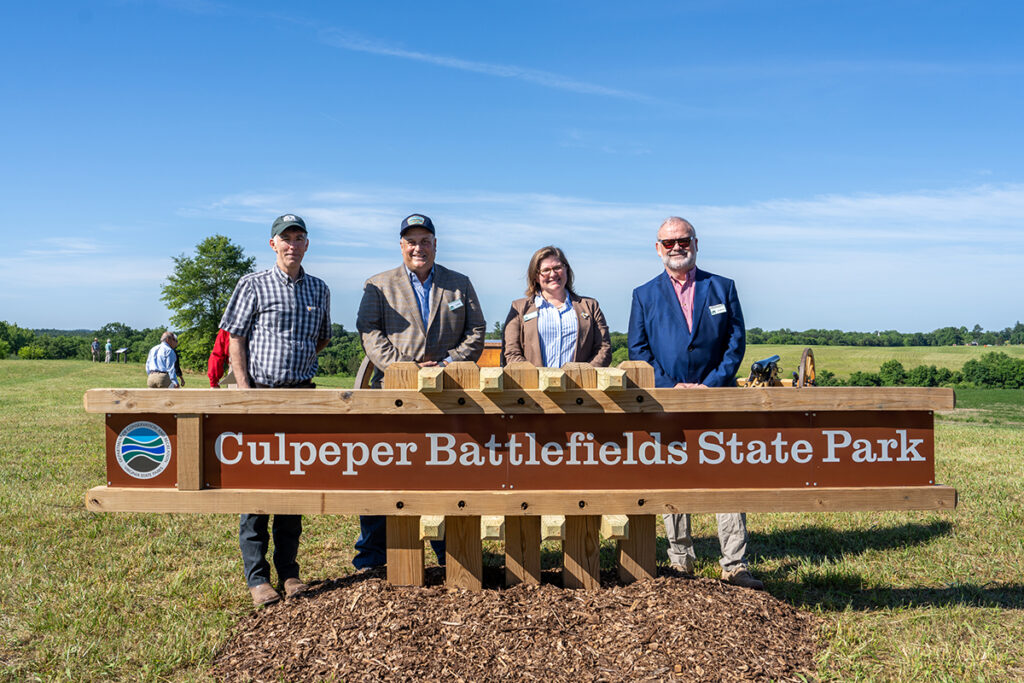
Update on Data Centers in Culpeper and Invite to Upcoming Rooftop Solar Lecture
I’m writing today to share some good news, some hopeful developments in our continued fight against the relentless industrialization of Culpeper by the data center industry, and an invitation to our ongoing lecture series at the Culpeper County Library.

